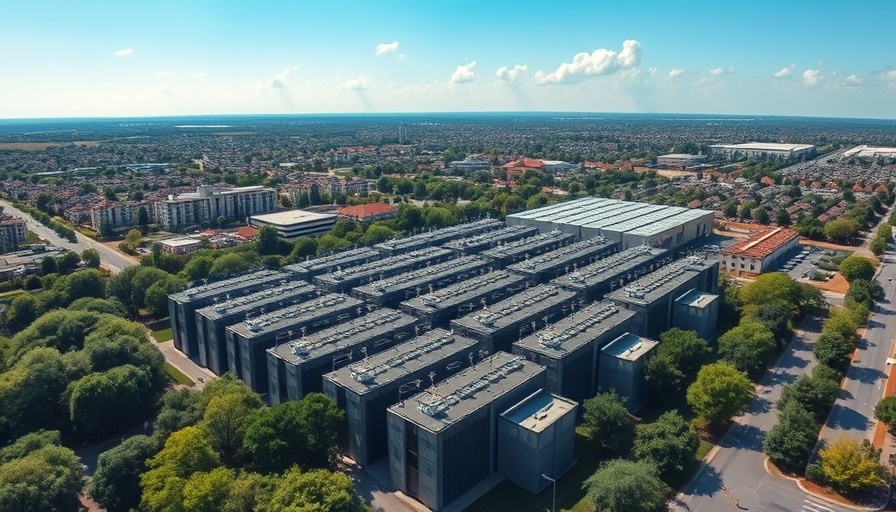
The Dual Edge of AI’s Climate Promises
The latest International Energy Agency (IEA) report indicates the potential of Artificial Intelligence (AI) to significantly lower greenhouse gas emissions in the long run. However, this optimistic foresight is tempered by the pressing reality that AI and the booming data center industry are currently exacerbating energy consumption and emissions.
An Increased Demand on Energy Resources
AI's rapid advancements come at a cost to our environment. With vast networks of data centers, powered predominantly by fossil fuels, the demand for energy escalates. As these facilities operate continuously, they’re largely fueled by natural-gas turbines—a process correlated with substantial emissions. Developers are proposing to create more gas plants and even revive retired coal plants to keep up with this surging energy demand. This situation raises questions about the sustainability of our choices in the age of AI.
Can AI Be the Solution We Need?
While it may seem contradictory, proponents argue that AI could eventually become a crucial tool in fighting climate change. According to the IEA’s findings, AI technology has been employed effectively in certain sectors to identify methane leaks in the oil and gas industry, enhance the efficiency of power plants, and lessen energy consumption in buildings. These initiatives could gradually transform how businesses manage their carbon footprint.
Drawing Parallels: AI and Carbon Offsets
This rhetoric surrounding AI’s climate potential mirrors the previously touted promises of carbon credits—where companies justified their emissions by funding environmental initiatives elsewhere, like tree planting. Many have criticized this approach as misleading. Just as carbon credit systems have faced scrutiny for overstating their benefits, the assurances surrounding AI's future emissions reductions necessitate skepticism. With AI offsets, the dangers of overpromising benefits that may take years or decades to materialize present a pressing concern.
The Need for Accountability
The absence of a market or regulatory mechanisms to monitor AI's carbon offset promises raises additional alarms. Unlike established systems for carbon credits, there is no structured way to ensure compliance in reducing emissions tied directly to AI advancements. To ensure these claims are substantiated with measurable outcomes, the tech industry must be held accountable, fostering an environment that not only honors promises but also enforces tangible results.
Exploring Sustainable Energy Solutions
Amid the urgency of the current scenario, it is imperative to address the alternatives available. The narrative around powering data centers with cleaner sources like geothermal, nuclear, or renewable energy options is critical, regardless of their higher costs or longer timetables for implementation. The industry's choice to prioritize quick energy solutions should not undermine the potential for sustainable practices that can pave the way for a greener future.
Connecting Innovations to Actionable Insights
What can individuals and businesses take away from this discourse on AI and emissions? It is essential to advocate for sustainable solutions, pushing for policies that incentivize renewable energy investment and hold entities accountable for their environmental impact. As end-users of AI and related technologies, we have a responsibility to demand transparency and ethics in how these tools are marketed as solutions to climate issues.
Final Thoughts: Rethinking Technology’s Role
The conversation surrounding AI's role in combating climate change is increasingly nuanced. While the potential for AI to reduce emissions exists, it is vital to scrutinize its current impact and the promises made regarding its future. We must balance immediate energy demands with sustainable practices, ensuring that technological advancements translate into real climate benefits.
 Add Row
Add Row  Add
Add 
 Add Element
Add Element 


Write A Comment